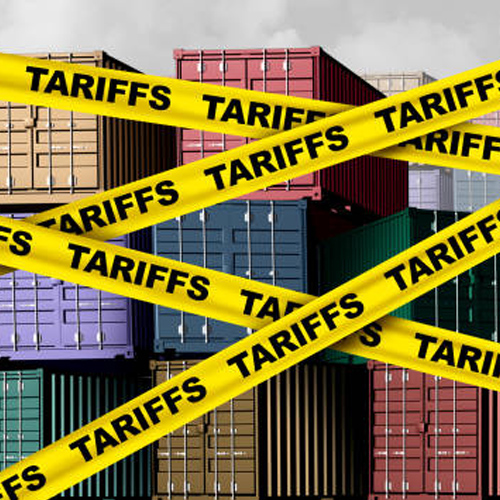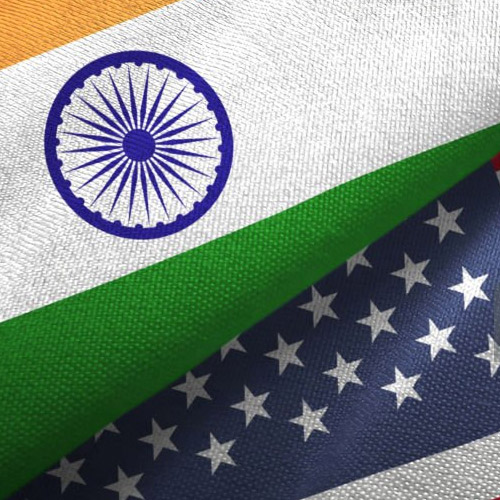US-CHINA TARIFF DISPUTE: 'RECIPROCAL TARIFFS' RISK ECONOMIC SUICIDE
US-CHINA TARIFF DISPUTE: 'RECIPROCAL TARIFFS' RISK ECONOMIC SUICIDE

WASHINGTON — The Trump administration's latest round of "reciprocal tariffs" against China has economists and policy analysts warning of potentially severe unintended consequences for the American economy, with projections indicating a 0.2 percent reduction in U.S. GDP and a $132 billion decrease in ten-year revenue.
These measures, announced last week by U.S. Trade Representative Katherine Tai, represent a significant escalation in the ongoing trade dispute between the world's two largest economies. While administration officials have framed the tariffs as necessary to counter China's "unfair trade practices," economic experts across the political spectrum are raising concerns about their domestic impact.
"These tariffs are essentially a self-imposed tax on American businesses and consumers," said Dr. Michael Pettis, senior fellow at the Carnegie Endowment for International Peace. "The data consistently shows that the economic burden of tariffs falls primarily on the implementing country, not the target."
The Peterson Institute for International Economics released an analysis yesterday projecting that the new tariffs will increase consumer prices across multiple sectors, with particularly pronounced effects on electronics, manufactured goods, and certain agricultural products. American manufacturers relying on Chinese components have already begun warning of production disruptions and potential layoffs.
Meanwhile, Beijing has shown little indication that the pressure will bring them back to the negotiating table. On the contrary, Chinese officials have responded with a measured confidence that has rattled some in Washington.
"We have prepared extensively for this scenario," said Li Wei, China's Minister of Commerce, in a statement released through state media. "While we remain open to good-faith negotiations, China's economy has developed considerable resilience to external pressure."
Chinese economic experts share this assessment. Dr. Yu Yongding of the Chinese Academy of Social Sciences noted that "unlike previous trade confrontations, China now has both the domestic market scale and the diverse international partnerships to navigate around these obstacles."
Indeed, Beijing appears to be seizing the opportunity to accelerate its "dual circulation" economic strategy, which emphasizes boosting domestic consumption while simultaneously cultivating alternative international markets. The approach aligns with President Xi Jinping's long-term vision of reducing China's vulnerability to Western economic pressure.
European leaders have taken notice. With Washington focused on its China confrontation, Beijing has intensified diplomatic and economic outreach to European capitals. Last month, China and the European Union announced progress on their Comprehensive Agreement on Investment, which had previously been stalled due to human rights concerns.
"We're seeing a remarkable diplomatic pivot from Beijing," said François Godement, senior advisor for Asia at the Institut Montaigne in Paris. "They're offering significant market access concessions to European firms that they previously refused, clearly aiming to drive a wedge between the U.S. and its allies."
The timing could hardly be worse for Washington. With domestic inflation concerns still lingering and economic growth projections already modest for the coming year, the GDP reduction attributed to these tariffs could have outsized political consequences.
Treasury Secretary Janet Yellen reportedly expressed reservations about the tariff strategy during internal administration deliberations, according to sources familiar with the discussions. The Treasury Department's analysis suggested that the revenue losses would significantly impact budget projections through 2035.
Market reactions have further complicated the picture. The S&P 500 has declined 3.2% since the tariff announcement, with particularly steep drops among technology and manufacturing companies with significant exposure to China.
"The market is sending a clear signal about the economic wisdom of this approach," said Rebecca Walser, chief market strategist at Walser Wealth Management. "Investors see the potential for escalation that could disrupt global supply chains just as they were finally normalizing."
Foreign policy analysts are additionally concerned that economic tensions could spill over into other critical areas of U.S.-China relations, including climate change cooperation, regional security issues, and pandemic preparedness.
"When economic dialogue breaks down, it typically drags other diplomatic channels with it," warned Ryan Hass, former China director on the National Security Council. "The administration needs to consider whether these tariffs actually advance our strategic objectives or simply satisfy a political impulse to appear tough on China."
For American businesses caught in the crossfire, the path forward remains uncertain. The U.S. Chamber of Commerce has urged both sides to return to negotiations, emphasizing that "neither economy wins in a prolonged trade war."
As Washington weighs its next moves, the evidence suggests that its strategy of economic pressure may be strengthening China's resolve rather than weakening it. With projections of domestic economic harm mounting, the administration faces increasing pressure to recalibrate its approach before what analysts are characterizing as a "self-inflicted setback of the highest order" becomes irreversible.
Related News .
Stay updated with the most important events.




